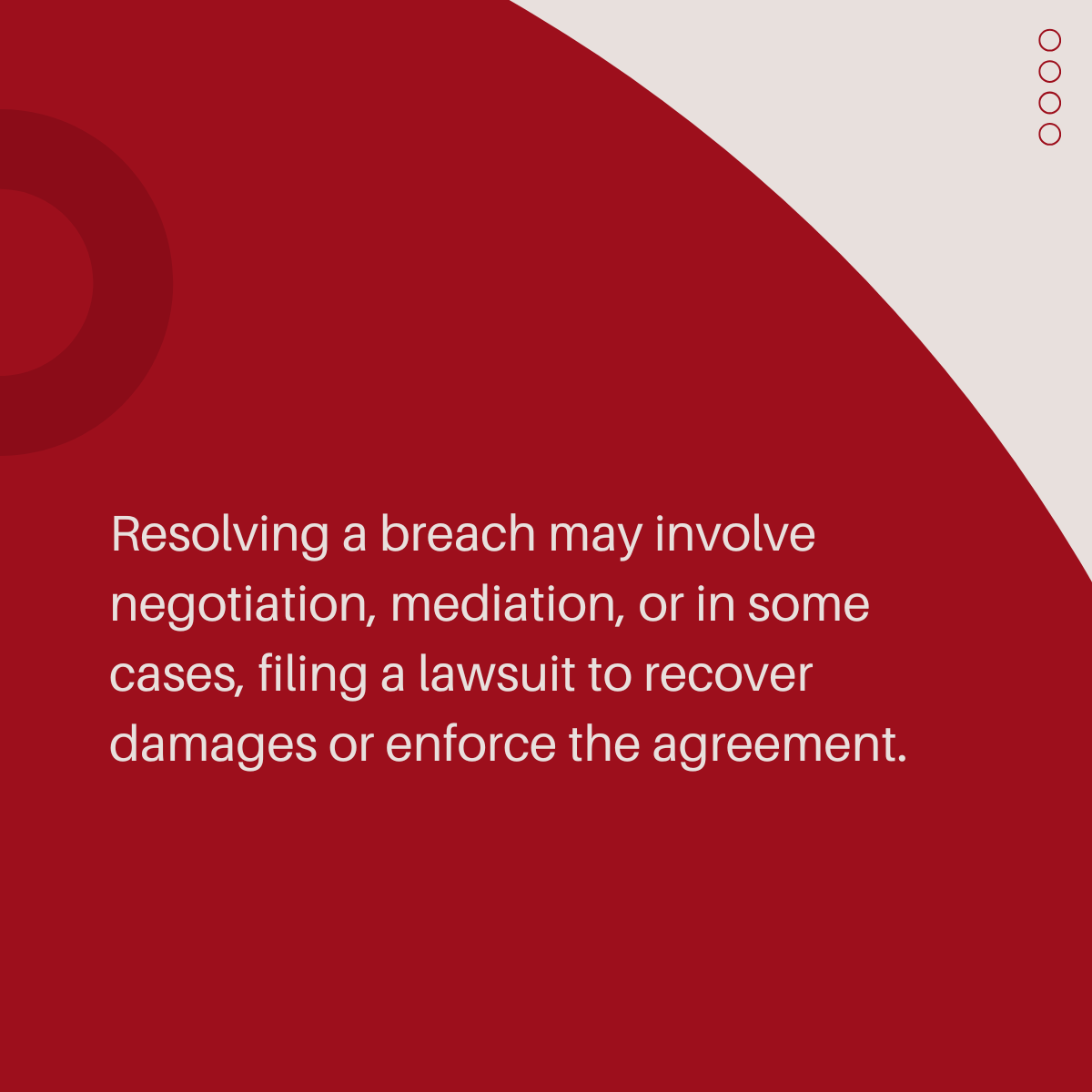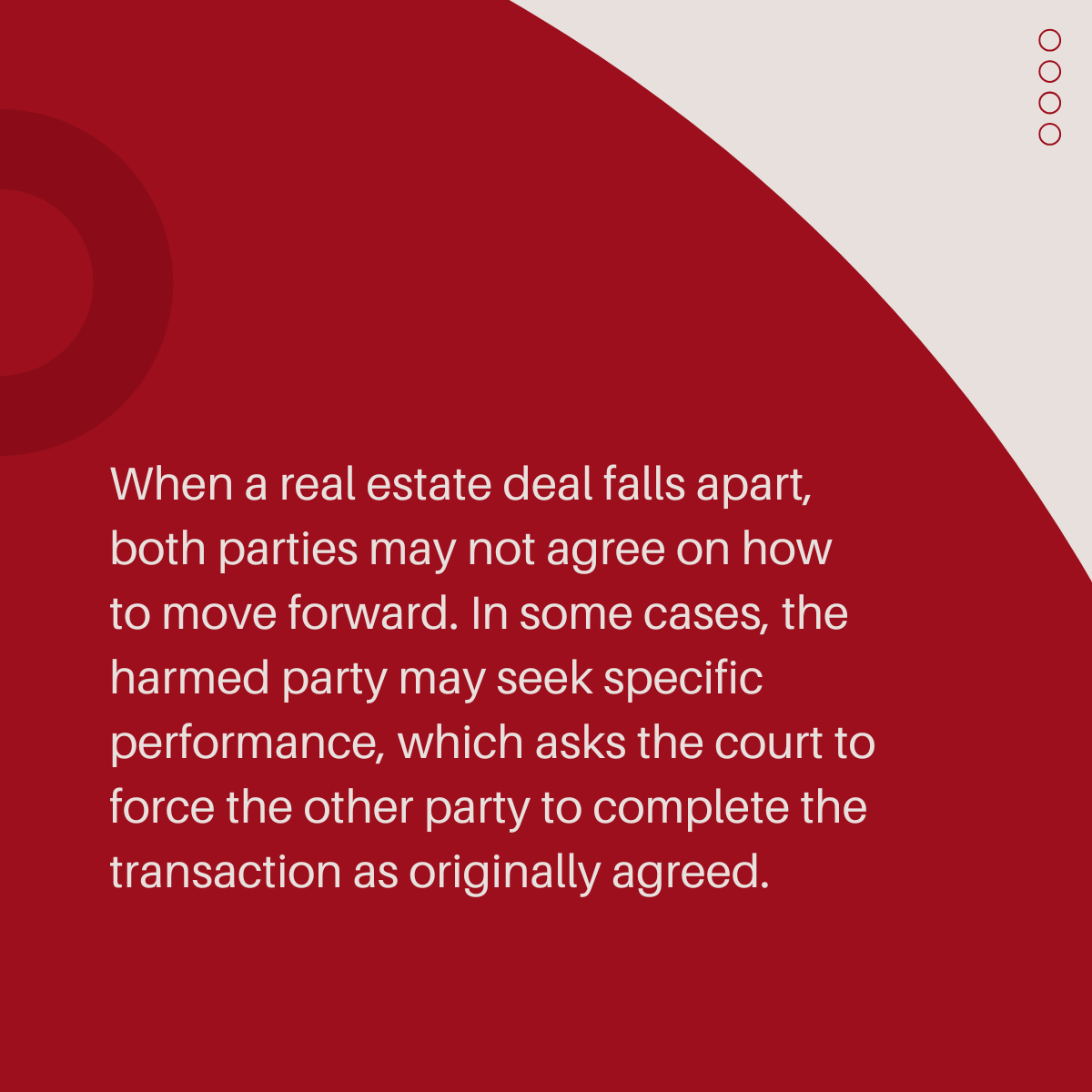
Common Issues in Real Estate Litigation
In an ideal world, real estate transactions would be seamless from the initial agreement to the final closing. However, unexpected issues may arise, leading to disputes that may require legal intervention. Title disagreements, contract breaches, zoning problems, or undisclosed property defects can all result in real estate litigation.
Whether you are a buyer, seller, landlord, or developer, understanding the common challenges in real estate law is essential. Partnering with an experienced real estate attorney can help you navigate these disputes effectively and safeguard your interests.
Common Issues in Real Estate Litigation
Real estate disputes can be complex, time-consuming, and financially draining. Understanding these issues can help you identify potential risks early and take steps to protect your investment.
Below are some of the most frequent causes of litigation in real estate.
1. Title and Boundary Disputes
Disagreements over who owns what—or where one property ends and another begins—are some of the most common legal issues in real estate. Title disputes often arise from clerical errors, unresolved liens, inheritance claims, or questions about prior ownership. Boundary disputes, on the other hand, usually involve neighboring property owners and unclear property lines.
These issues can be especially frustrating when they threaten the use, value, or sale of a property. In many cases, surveys, title searches, and historical records are needed to resolve the problem. But when informal efforts fail, legal action may be required to settle the matter through quiet title claims, injunctions, or negotiated settlements.
Having legal support from a real estate attorney in these situations is critical. A knowledgeable attorney can help establish ownership rights, interpret deeds and easements, and ensure your property interests are protected.
2. Breach of Contract
Real estate contracts involve detailed agreements between buyers, sellers, landlords, tenants, or developers. When one party fails to meet their obligations, such as missing a closing date, failing to make payments, or not delivering the property as promised, it can lead to a breach of contract claim.
These disputes often hinge on the fine print: Was the condition clearly stated? Was there a valid reason for the delay or non-performance? Resolving a breach may involve negotiation, mediation, or in some cases, filing a lawsuit to recover damages or enforce the agreement.
Legal guidance is especially important when interpreting contract terms or preparing to take action. An experienced real estate attorney can help assess the situation, explore possible remedies, and represent your interests if the matter goes to court.

3. Landlord-Tenant Disputes
Conflicts between landlords and tenants are a regular source of legal action in both residential and commercial real estate. These disputes can involve non-payment of rent, property damage, lease violations, security deposit disagreements, or eviction proceedings. In commercial settings, disagreements over maintenance responsibilities, build-outs, or early termination clauses can also lead to litigation.
While some issues can be resolved through direct communication or mediation, others escalate and require formal legal intervention, especially when financial losses or property damage are involved.
State and local laws often provide specific protections and requirements for both parties. A real estate litigation attorney familiar with landlord-tenant law can help enforce lease terms, navigate eviction procedures, or defend against unlawful detainer actions, ensuring your rights are upheld.
4. Fraud and Misrepresentation
Real estate transactions are built on trust and full disclosure. When one party knowingly withholds information or provides false statements, it can lead to claims of fraud or misrepresentation.
Buyers who discover issues after closing may feel blindsided and financially burdened, especially if the problems affect the property’s value or safety. Sellers, too, may face accusations if disclosures weren’t properly made, even unintentionally.
Proving fraud involves more than showing that a mistake was made. It requires demonstrating intent to deceive and financial harm as a result. Legal counsel from real estate law firms is essential in building or defending against these claims, whether through negotiation, mediation, or litigation.
5. Zoning and Land Use Issues
Zoning laws and land use regulations can affect how a property can be developed, renovated, or used. Disputes may arise when a property owner’s plans conflict with local ordinances, when permits are denied, or when neighbors challenge proposed uses through zoning boards or city councils.
These issues are especially common in commercial real estate and development projects, where even minor code violations or misinterpretations can lead to delays or forced changes. For residential properties, zoning problems might include building setbacks, home-based business restrictions, or accessory dwelling unit regulations.
Legal representation can help property owners present a strong case to zoning authorities or defend their rights if a violation is alleged.
6. Specific Performance and Rescission
When a real estate deal falls apart, both parties may not agree on how to move forward. In some cases, the harmed party may seek specific performance, which asks the court to force the other party to complete the transaction as originally agreed. This is common in real estate, where each property is considered unique and monetary damages may not be a sufficient remedy.
On the other hand, a party might pursue rescission, which is a legal remedy that cancels the contract entirely and aims to restore both sides to their pre-contract positions. This often occurs when there has been fraud, mistake, or a major breach of the agreement.
These remedies are not automatic; courts will closely examine the facts before granting either. A skilled attorney can help determine the most effective legal strategy based on the circumstances and work to protect your financial and property interests.

Source: Freepik
7. Construction and Development Disputes
Real estate development involves multiple moving parts like contracts, timelines, inspections, and regulatory compliance. When expectations aren’t met, disputes can arise between property owners, contractors, subcontractors, architects, or developers. Common issues include construction defects, delays, cost overruns, or failure to meet agreed-upon specifications.
These disagreements can put entire projects on hold or lead to significant financial losses. In some cases, the conflict stems from unclear contract terms; in others, it’s due to poor workmanship or noncompliance with building codes and safety standards.
Whether the dispute involves residential construction or large-scale commercial development, legal support from a law firm is needed to enforce contracts, file claims, or defend against accusations. Early intervention by a legal professional can often prevent a drawn-out litigation process and keep projects moving forward.
How a Real Estate Law Firm Can Help
Real estate disputes are rarely simple, and the consequences of a misstep can be costly. Having experienced legal counsel on your side can make all the difference.
Real estate law firms nearby with deep knowledge of property laws can offer tailored guidance based on your unique situation. From reviewing contracts to representing you in court, a real estate attorney can help protect your rights, resolve conflicts efficiently, and avoid unnecessary risks.

Conclusion
Real estate litigation can affect anyone involved in buying, selling, leasing, or developing property. While some disputes can be resolved quickly, others require legal action to protect your investment and rights. Understanding the most common issues can help you stay prepared and avoid setbacks.
Contact DMAB
If you’re dealing with a real estate issue or need legal guidance, don’t wait until the problem escalates. Consult with our qualified attorneys at DMAB to know your options.
